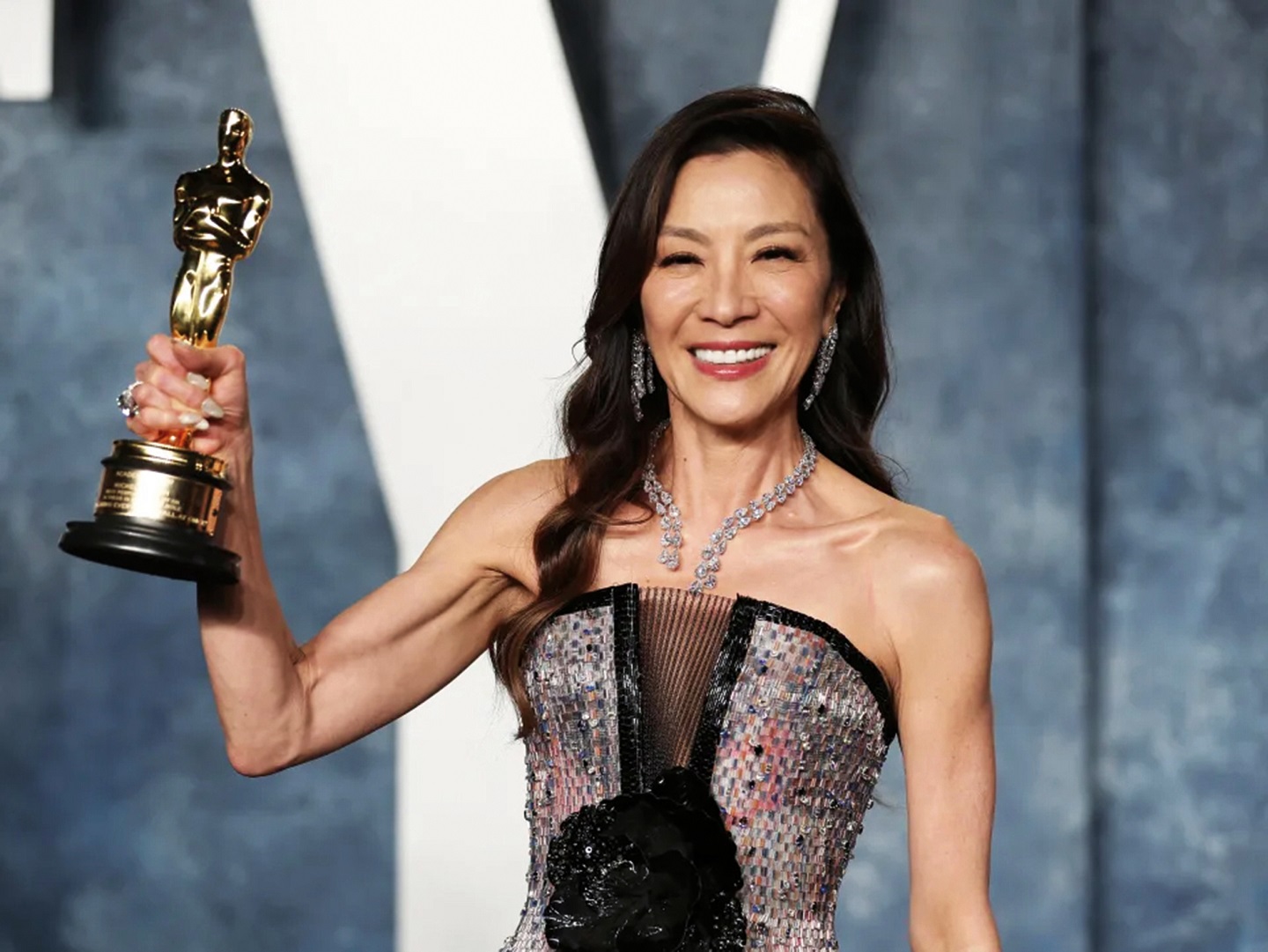
A proud Yeoh holding aloft her Oscar statuette (Photo: Reuters)
Tan Sri Michelle Yeoh winning the 2023 Oscar for Best Actress — the first Asian woman to do so — has surely got Malaysian parents looking for clues in her childhood that might possibly help them raise their own children to similar heights of success.
At a glance, Yeoh’s upper-middle-class Chinese upbringing does not appear terribly different from that of many other girls of her generation. Born in 1962 in Ipoh to a lawyer father and a traditionalist mother, she spoke English and Malay ahead of Cantonese and Mandarin, both of which she only learnt phonetically when she got into movies.
Typical of girls of her background, Yeoh took piano lessons and was sent for ballet classes. She started ballet as early as four years old because her mother had set her heart on her only daughter becoming a professional ballerina. That notwithstanding, until she moved with her family to the UK, she competed in swimming (the Yeohs lived next door to the Ipoh Swimming Club), diving, squash and even rugby at the all-girls SMK Main Convent she attended. Remarkably, it did not seem to worry her parents that these were rigorous competitive sports that developed muscles in a girl and put her at risk of severe injury.
Despite standing at just 164cm or 5ft 4in, Yeoh learnt from an early age that she could be petite but still strong, and graceful but also quick, deft and sure-footed. And although at 60 today, she famously observes an elaborate and expensive skincare regime (but no botox or cosmetic surgery for her), she was brought up to love the outdoors and the scorching sun as her family routinely took weekend fishing trips to Pangkor Island, where she once landed a 14kg snapper — her biggest catch ever.
mv5byzlkmtu3njctnmm2yy00otg3lwfhntmtndnlnjmwywm1zgu1xkeyxkfqcgdeqxvymdm2ndm2mq._v1_fmjpg_ux2160_.jpg
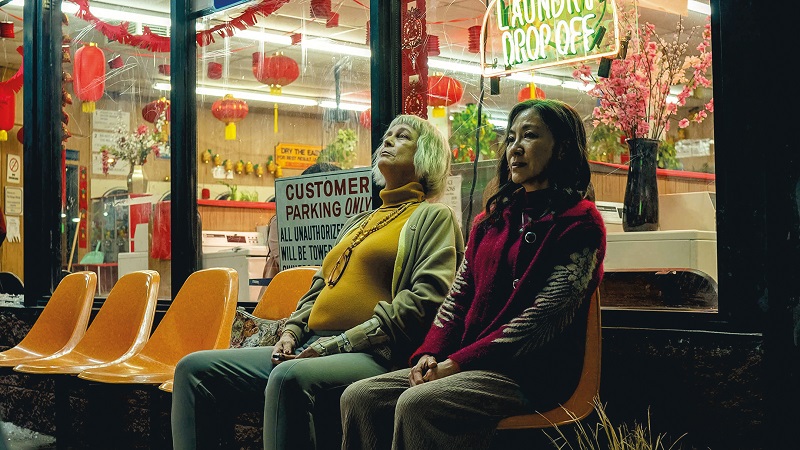
The familiar narrative that Yeoh only turned to martial arts after her spinal injury in England ended any hope for a professional career in ballet needs correction. On the contrary, before she moved to the UK and enrolled at the Royal Academy of Dance, her father felt strongly that she should be able to defend herself and sent her for wushu lessons at the Ipoh Chinese Chin Woo Athletic Association, alongside her brother Bobby, who was two years younger.
It is also a fallacy that Yeoh has always led a charmed life and everything dropped into her lap throughout her life. The truth is, opportunities did come her way, but she was earnest and eager to prove herself, and she reached for them. At 20, after being crowned Miss Malaysia in 1983, Yeoh was offered the opportunity by the tycoon entrepreneur Dickson Poon to star in a watch commercial with Jackie Chan and it ushered her into the thriving Hong Kong film industry. Many of them were low-budget all-action movies that did poorly at the box office, but she did not care. It was hard work. She simply loved doing her own stunts and was becoming famous for it. Not for her were the “fragile Ming vase” female roles that portrayed women as weak, subservient victims.
In fact, Yeoh would spend hours in front of a mirror, practising aggressive facial expressions. As she once told The New Yorker, “You could be throwing a hard punch, but if your face doesn’t say, ‘I’m going to kill this guy’, the audience is not impressed”.
Yeoh’s movie career halted in 1988, when she married Poon, who came from a very rich family and ran a thriving multimillion-dollar retail empire, including Harvey Nichols in the UK. Despite her third film, Yes, Madam! in 1985, earning her rave reviews for her skills as a Wing Chun martial artist and street fighter, she retired from acting at Poon’s request so they could start a family. She subsequently became a full-fledged tai-tai — playing mahjong, lunching and shopping with friends. “It was a choice I made and I believed in it,” she said.
michelle_yeoh2.jpg
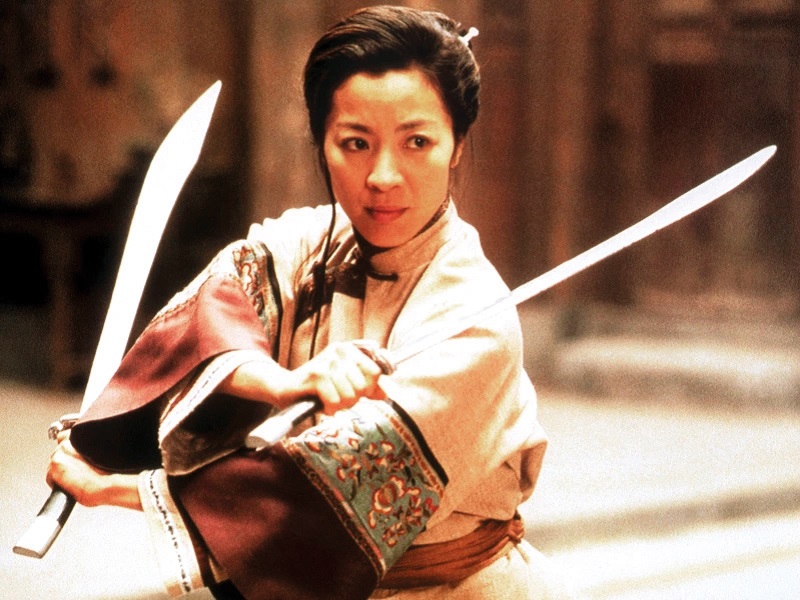
Nevertheless, after three years of failed attempts to conceive, the couple divorced and she had to reset her priorities. Yeoh, who refused to discuss her divorce for many years, eventually opened up about the pain and trauma she went through. “I was desperate. I love kids and saw myself surrounded by them. But there’s only so much you can put your body and mind through. It comes to a stage where you have to accept it, move on and deal with the repercussions. In a Chinese family, [having children] means a great deal.”
Her marriage over, Yeoh threw herself back into action movies, but it was a passion that would nearly get her killed. In 1996, she was cast by director Ann Hui in The Stuntwoman and almost broke her back after she jumped 15m off a freeway overpass but missed a pile of boxes that were meant to soften her fall. In hospital, the immobilised former ballerina was forced into serious self-reflection about her future. However, Quentin Tarantino, who was in Hong Kong to shoot Kill Bill, paid her a visit and inspired her to get better and return to doing the stunts she loved. And that was how she went on — right on cue — to tear her anterior cruciate ligament on the set of the 2000 film Crouching Tiger, Hidden Dragon. The injury put her out of action for two months and Ang Lee had to resort to camera tricks after that because she could only do stationary stunts.
Did Yeoh have a death wish? Did her inability to conceive and failed marriage push her to pursue danger? Did the adrenaline rush and close brushes with mortality make her feel more alive?
Incredibly, and this will shock many, Yeoh did not even see herself as an actress for the longest time. When her dream to be a ballerina ended, she went on to study choreography and drama. But despite graduating with a BA in Creative Arts and a minor in drama from Crewe and Alsager College in Cheshire, acting held no appeal for her.
mv5bmji0nzcwotczmv5bml5banbnxkftztgwmde1njy2ntm._v1_fmjpg_ux2048_.jpg
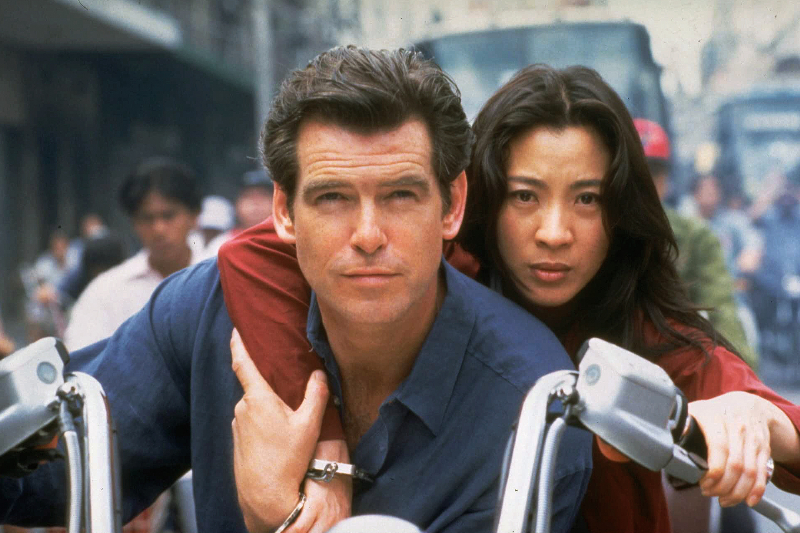
Indeed, throughout her film career in Hong Kong, Yeoh had no script to memorise or follow: She just showed up to perform the actions she was required to do, and said the lines fed to her. (For the record, review aggregator Rotten Tomatoes in 2008 ranked Yeoh as the best action heroine of all time.)
The turning point for Yeoh came when she was 35, starring opposite Pierce Brosnan in the 1997 James Bond film, Tomorrow Never Dies, when director Roger Spottiswoode drew her aside and advised her not to do her own stunts, saying, “Yes, you have an extra skill, which I hope we can incorporate in your work, but you should be confident that you are here as an actress”.
The Bond film was also significant for Yeoh as she reclaimed her own name instead of using Michelle Khan, which Poon had thought would widen her appeal to international audiences. The movie sealed her recognition as a Hollywood star and she began to take herself seriously as an actress.
In 2002, Yeoh produced her first English film, The Touch, under her own company Mythical Films. Many more roles would come her way to win her wide acclaim, notably Mameha in Memoirs of a Geisha, Aung San Suu Kyi in The Lady, Starfleet Captain Philippa Georgiou in the series Star Trek: Discovery, Eleanor Young in Crazy Rich Asians, Ying Nan in Shang-Chi and the Legend of the Ten Rings and finally, Evelyn Wang in Everything Everywhere All at Once.
In accepting her Oscar for Best Actress, Yeoh urged women, “Don’t let anybody tell you you’re ever past your prime.”
mv5bowzlztgxymytztqxzi00mwe2lwi2otqtmme1mdzmmdy4zgm4xkeyxkfqcgdeqxvymjk3ntuyotc._v1_fmjpg_ux1200_.jpg
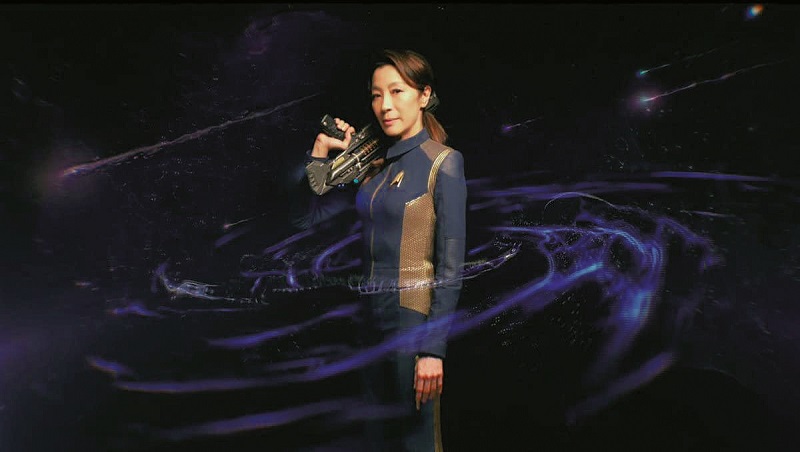
Clearly, the fact that Yeoh can say it is because of the lessons she has learnt and the choices she has consciously made. As she said in a recent interview: “I’ve learnt some things over the years, and I’m more clever and smarter in how I can sustain my stamina. I’m fit as I was before because I know how to look after myself much better.”
As a self-avowed Buddhist who meditates and recites a mantra before doing her daily stretches, core exercises and morning run, she also conceded, “I’ve had injuries over the years, so I have had to rectify them. It starts from within. I tell my body, I’m sorry. Forgive me for all the things I’ve done to you. And thank you”.
Without doubt, it has also helped that Yeoh enjoyed the unstinting love and support of her family. As fiercely independent, determined and self-motivated as she has been all her life, she never forgot her parents’ reassurances, “Go and do what you want to do. Home is always here for you, and if you don’t like it out there, come back. You can always do something different”.
As she put it, “When you have an option like that, you are able to choose roles or choose the things you want to be in”.
This article first appeared on Mar 20, 2023 in The Edge Malaysia.


